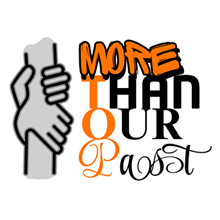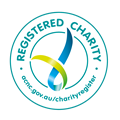| |
|
About Us
| The Mission and Core Values of "More Than Our Past" |
At the heart of More Than Our Past lies a simple yet powerful mission: to provide non-judgemental, comprehensive support for prisoners, ex-prisoners, and their families. Unlike many traditional criminal justice programs that focus on punishment and retribution, More Than Our Past takes a restorative, rehabilitative approach. The core values that underpin the organisation's work are rooted in compassion, empowerment, and community-building. |
| |
1. |
Non-Judgemental Support
One of the most powerful aspects of More Than Our Past is its commitment to offering holistic non-judgemental support. In the criminal justice system, individuals often face public stigma and societal alienation, regardless of their innocence or guilt. The organisation recognises that everyone has a story, and that past mistakes do not define an individual's future. This non-judgemental approach helps create an environment where those who are incarcerated, or who have been incarcerated, can access the support they need without fear of condemnation or further marginalisation. |
| |
2. |
Restorative Justice
Restorative justice is a fundamental aspect of the organisation's philosophy. Traditional justice systems focus primarily on punishment, which often leads to a cycle of reoffending. In contrast, restorative justice seeks to heal and repair the harm caused by crime, with an emphasis on accountability, understanding, and healing. Through restorative justice programs, More Than Our Past encourages offenders to take responsibility for their actions, make amends with their victims, and reintegrate into society in a meaningful way.
Restorative justice also benefits victims, providing them with an opportunity to have their voices heard, express their feelings, and achieve some level of closure. This process not only fosters empathy and healing for both victims and offenders but also strengthens community ties and reduces the likelihood of future harm. |
| |
3. |
Holistic Approach
A key feature of More Than Our Past is its holistic approach to supporting those affected by incarceration. This approach recognises that incarceration and criminal behaviour are often symptomatic of deeper, more complex issues such as poverty, mental illness, substance abuse, and trauma. The organisation offers a variety of services designed to address these issues, helping individuals reintegrate into society and break the cycle of recidivism.
By treating the root causes of criminal behaviour, More Than Our Past helps to ensure that individuals are not merely released from prison but are equipped with the tools, support, and resources they need to build better futures. This approach is crucial to reducing the likelihood of reoffending and supporting long-term recovery and success. |
| |
4. |
Empowerment
Empowerment is at the core of More Than Our Past's mission. The organisation believes that individuals affected by incarceration can regain control of their lives through education, support, and skill-building. Through vocational training, mental health services, and practical assistance, More Than Our Past empowers ex-prisoners to become self-sufficient, confident, and responsible members of society.
By equipping individuals with life skills such as budgeting, communication, self awareness and conflict resolution, the organisation fosters independence and personal growth, which are essential for a successful transition to life outside of prison. Empowerment also extends to families, who are often left to cope with the emotional and financial burden of having a loved one incarcerated. By supporting families, More Than Our Past helps to ensure that the entire support network surrounding an individual is strong and capable of fostering a successful reintegration. |
| |
5. |
Community Building
More Than Our Past is deeply committed to fostering healthier, more resilient communities. The organisation works not only with prisoners, ex-prisoners, and their families but also with the broader community to reduce stigma, build understanding, and encourage restorative practices. By supporting individuals who have been incarcerated, More Than Our Past aims to strengthen communities by helping people reintegrate in a way that benefits society as a whole.
Through the provision of programs that focus on community healing, conflict resolution, and building empathy, More Than Our Past works to bridge the gap between those affected by the criminal justice system and the wider community. This sense of connection and mutual responsibility is crucial for the long-term success of rehabilitation and reintegration efforts. |
| Key Services and Programs Offered by "More Than Our Past" |
More Than Our Past offers a comprehensive range of services designed to address the multifaceted challenges faced by prisoners, ex-prisoners, and their families. The organisation's approach is highly tailored, recognising that the needs of individuals can vary depending on their circumstances, background, and the nature of their involvement with the criminal justice system. The following outlines the key services and programs provided by the organisation. |
| |
1. |
Volunteer Support for Prisoners and Families
A central component of More Than Our Past's work is its volunteer support programme. Volunteers play an integral role in maintaining contact with prisoners, ex-prisoners, and their families. Given the emotional and psychological toll that incarceration can have on individuals, maintaining connections with the outside world is vital to the well-being of prisoners.
Volunteers communicate with prisoners primarily through letters and phone calls, as these methods of contact are often the most accessible means of communication within the prison system. In some cases, More Than Our Past may also facilitate in-person visits, subject to the regulations of individual correctional facilities. These interactions provide prisoners with a vital sense of connection and support, reducing feelings of isolation and helping to maintain hope for the future.
The organisation also offers support to the families of incarcerated individuals, many of whom experience significant hardship and emotional strain. Volunteers provide emotional support, practical advice, and help navigating the complexities of the criminal justice system. This assistance can be crucial for families, particularly in terms of managing the financial, emotional, and logistical challenges of having a loved one in prison.
Please note: While our volunteers and staff may help you understand aspects of the prison system, More Than Our Past does not provide legal advice. For legal concerns, we encourage individuals to consult with an appropriate legal representative e.g Solicitor (Lawyer/Attorney), Community Legal Centres or the Legal Aid in your State or Territory. |
| |
2. |
Support for Newly Released Prisoners
One of the most challenging aspects of incarceration is reintegration into society. Ex-prisoners often face a range of obstacles that can hinder their efforts to rebuild their lives, including financial hardship, difficulty in regaining employment, limited housing options, and social stigma. More Than Our Past helps individuals aged 18 and over navigate these challenges by offering practical support in the form of food, accommodation, and other essential services – given available funds.
- Food and Accommodation: Upon release, many ex-prisoners find themselves without stable housing or access to basic necessities. More Than Our Past provides temporary accommodation and assistance with securing permanent housing, helping to ensure that individuals do not fall into homelessness or further despair – given available funds.
- Employment Support: Finding stable employment is often a significant hurdle for ex-prisoners. With criminal records, many individuals struggle to gain employment, even in entry-level positions. More Than Our Past provides job-readiness programs, vocational training, and direct job placement assistance, helping individuals find meaningful work and regain financial independence – given available funds.
- Mental Health and Addiction Services: Mental health issues and substance abuse are prevalent among individuals who have been incarcerated. More Than Our Past offers referral to mental health support and addiction counselling to help ex-prisoners address these underlying issues and break free from the cycle of substance abuse. These services are essential for ensuring that ex-prisoners do not return to criminal behaviour due to untreated mental health or addiction issues.
|
| |
3. |
Restorative Justice Programs
At the heart of More Than Our Past's philosophy is the concept of restorative justice. Restorative justice focuses on repairing the harm caused by crime through dialogue, accountability, and healing, rather than simply punishing offenders. This approach fosters empathy, promotes personal responsibility, and encourages the reintegration of offenders into society.
- Victim-Offender Dialogue: One of the key elements of restorative justice is creating opportunities for offenders to meet with victims. These dialogues are facilitated in a safe and controlled environment, allowing both parties to express their feelings, ask questions, and begin the process of healing.
- Community Healing and Reintegration: Restorative justice also includes community-based initiatives aimed at healing relationships and promoting understanding between offenders and the wider community. These programs include community service projects, restorative circles, and other initiatives that encourage offenders to give back to the community in a meaningful way.
|
| |
4. |
Rehabilitation and Life Skills Training
To help ex-prisoners successfully reintegrate into society, More Than Our Past provides a range of rehabilitation programs designed to address the underlying causes of criminal behaviour and equip individuals with the skills they need to thrive.
- Life Skills Education: More Than Our Past offers life skills training in areas such as english, maths, budgeting, cooking, communication, self awareness and conflict resolution. These skills are crucial for individuals transitioning back into society, as they help promote independence, reduce stress, and build confidence.
- Job Training and Vocational Education: Vocational training is a critical component of More Than Our Past's efforts to help ex-prisoners secure stable employment. The organisation offers referral to training in a variety of trades, including construction, hospitality, and IT, providing ex-prisoners with the skills needed to pursue meaningful careers.
|
| |
5. |
Family Support
The families of incarcerated individuals often face significant challenges of their own. More Than Our Past offers support to families in the form of emotional support, counselling, financial assistance – if funds permit, and help navigating the criminal justice system. By supporting families, the organisation helps ensure that they are equipped to provide a stable and supportive environment for their loved ones upon release.
Important Note: Our support is strictly non-legal in nature. We do not provide legal advice, and we recommend that families facing legal issues contact an appropriate legal representative e.g Solicitor (Lawyer/Attorney), Community Legal Centres or the Legal Aid in your State or Territory. |
| |
6. |
Reducing Recidivism
Ultimately, the goal of More Than Our Past is to reduce recidivism. By addressing the root causes of criminal behaviour, providing practical support, and fostering personal responsibility, the organisation aims to help individuals break the cycle of incarceration. Through mentorship, life skills training, mental health referral and community integration, More Than Our Past helps ex-prisoners become self-sufficient and contribute positively to society.
|
| |






